- Home
- MaryJanice Davidson
Yours, Mine, and Ours Page 19
Yours, Mine, and Ours Read online
Page 19
Because I didn’t want to hear what Paul was going to tell us. If HOAP.1 could smell blue, that meant there were more bodies out there than we knew. I didn’t want to know that.
I didn’t want to smell blue.
Even George seemed moved by Paul’s state, because he helped me help Paul to the empty bar stool, and stacked the papers on the counter in front of us.
I gently took his glasses off his face, breathed on them, then vigorously rubbed with a nearby Kleenex—not the lotion kind. Ah! Much better. Now they were actually clear. Ish. Clear-ish?
“From what my man was telling me before you got here, Cadence, he said these killings have been going on much, much longer than seven years.”
I sighed. “I was afraid of that. So how long? Ten years? Twelve?”
“Try fifty-six.”
Silence, broken by thwack! Thwack! I felt like doing a little thwacking myself.
“That’s impossible,” Emma Jan said, her eyes enormous in her dark face. She looked frightened and exhilarated, a look—and feeling—I knew well. She felt bad about the deaths. And wanted to get the bad guy really, really bad. Sometimes I hated my job. Hated that to feel completion and joy in my work, a bunch of people had to die first.
“The JBJ killer has been active for over fifty years?” Emma Jan shook her head. “But that’s wrong. How can that be?”
I was rubbing my eyes. “I’ll tell you how. But we’ve gotta get rid of the stereotypes in our head first.”
“‘Our’ head?” Michaela asked, arching a brow as she dumped decimated celery into a large green bowl.
“We’ve been looking for a … a boogeyman, I guess, for want of a better name. Our heads haven’t really been in the game.”
“That’s because you can’t smell blue,” Paul said, not looking up. He was stacking and restacking the paperwork George had tried to put in order for him. “It’s not not not your fault.”
It was, though. Not only could I not smell blue, I was breaking in a new partner who liked one of me but not all of me. Something had happened to my boyfriend, and I couldn’t get Max Gallo out of my head. Except I was wondering if that was why I couldn’t get him out of my head. The more personal crap I had to wade through, the less time I had to feel guilty I couldn’t smell blue.
“We’ve been looking at this all wrong.” I wasn’t sure what I was going to say … I wasn’t sure why I’d even opened my mouth. But what I was saying … it felt right. So I sort of explored it while I was thinking about it, and then talking about it. “White kids in the summer. For over fifty years. It might as well have been the boogeyman, because we weren’t going to be able to see the truth.”
“What are you talking about?” George asked, and Emma Jan nodded in agreement. They were both staring at me like I’d grown a fourth personality. Ack! I shouldn’t even joke about that …
“Serial killers don’t often come across as drooling psychopaths. Well. Except for the psychopath part. We all know that. Intellectually, we know it. But what about Ted Bundy, Mr. Clean Cut? Yikes, what about Dorothea Puente? A little old lady serial killer! She looks like everybody’s grandma. If I had ever met my grandma, either of them—”
“Now there’s a horrifying thought,” George said, eyes wide. He knew some of my family history, and was right to be afraid.
“—I’m sure they would have looked a lot like Dorothea Puente. The jury couldn’t believe it! Jeepers creepers peepers, I’ve read the file a zillion times and I couldn’t believe it. But that sweet little old lady killed at least nine people and buried them in her garden. For money.”
“Don’t get her started on money,” George whispered to Emma Jan. “Oh, wait. That’s Shiro. Just play it safe and don’t get either of ’em started on money.”
“George: shut up.” His astonished stare was a wonderful reward. I hated to be rude, but some days … I’d never told George to shut up in my life, and now, what? Seven times in twenty minutes? It was shaping up to be an interesting day so far.
I took a deep breath. Michaela and Emma Jan were giving me their full attention, at least. “You guys can’t look at these unattractive suspects who have priors—like Behrman—and think, even unconsciously—maybe especially unconsciously—‘It’s gotta be this guy, he sure looks like a serial killer.’”
“I don’t think anybody’s—”
“No, trust me, we have. We’ve all done it with this guy, and I’m guilty of it, too. Half the reason I wanted to check out Behrman was because he looks like a thug. He looks like the type of butt-face jerk who’d get off on killing teenagers on the way to his KKK fund-raiser.”
Emma Jan smiled at me, and nodded. “Yup. That’s exactly what he looks like.”
“This guy, this JBK, is slick. He or she has done a bunch of them and we’re no closer to catching him than we were in … what? They started in…”
“1954,” Paul said, his nose almost touching one of his printouts. Michaela slowly shook her head and started cleaning carrots.
“Yes, thank you, 1954, bodies all over the place, all over the country, and we still don’t have a handle on this guy, who’s probably in his, what? Seventies? Who is going to be on the lookout for a nursing home resident who’s also a serial killer? Not anybody I know. That’s where we’ve been screwing up. It has to be somebody young, it has to be somebody who looks like a bad guy—it can’t be someone old enough to be our grandfathers! Except it is.
“You think … do you guys think, if he looked like what he is, he could have done this so many times? You think, if he looked like what he is, those kids would have let him anywhere near them? When he got started? In the fifties? There was child abuse back then and sexual abuse and serial killers, but your average teenager from 1956 wouldn’t know any of that. Back then, it was probably a lot easier for him to pick out prey. But these days? With every kid in the country knowing about pictures on milk cartons and watching Law and Order: SVU, and a zillion Internet sites devoted to serial killers? It’d be much, much harder for JBK to do his work … but he’s managing, isn’t he? Because he doesn’t look like what he is. Those poor boys were completely fooled until it was too late.”
They were all staring at me.
“What?”
They kept staring. Even Paul.
“Don’t do that,” I said sharply. “I don’t like that.”
“Then for Christ’s sake,” George whispered hoarsely, “don’t stare at her, you three. Cadence, nobody wants you to freak out or feel threatened or even get mildly sweaty. Just because Adrienne didn’t show up when you planned doesn’t mean we want her popping out in this meeting like a redheaded psycho jack-in-the-box. We’re not staring! We’re … uh … thinking. While we look at you intently. In fact, I’m going to think—” He cut himself off, and suddenly had the most peculiar look on his face.
“Awwww, shit.” George slapped himself on the forehead, hard enough to leave a white mark that quickly turned pink. “We’re fuckin’ idiots.”
“Elaborate,” Michaela ordered, whittling an enormous carrot into a stack of orange coins.
“Of course it’s not some elderly desperado, some senior citizen. You guys … it’s a team.”
“Well … as he got older, sure…” Emma Jan said, brow furrowed as she concentrated on what he’d said.
“Not as he got older. All along. Like the Hillside Stranglers, Bianchi and Buono. Especially like those shitheads Bianchi and Buono. Because what’s the first team we’re ever a part of? No matter who we are or where we live?”
I had no idea. At all. Luckily, Emma Jan did: “Our family.”
“Yeah, that’s right,” he said, pointing at her. “That’s the first team we’re all on. And you’re either on the team for life or you get traded fast or something in the middle but yeah, gang. It’s family, first. I’m betting it’s family with these guys, too. Don’t you get it? The murders have been going on too long for it to be anything but a family affair.”
“So … a family of ser
ial killers. Like in The Texas Chain Saw Massacre. Oh, ugh, I can’t believe I just referred to a cult horror film in the middle of an FBI investigation.”
“This once, we’ll let it go,” Michaela said, starting on a new carrot.
“Think of all the dysfunction it takes to produce one serial killer in a family.” Emma Jan was shaking her head so hard, her bangs wiggled. I must find out what kind of gel she used. “Never mind two. What, like … Larry and Danny Ranes?”
“Gross,” I commented.
“But accurate,” Michaela added. “Don’t forget about Micajah and Wiley Harpe.”
“They called each other brothers, but they were cousins,” I said. And, also, gross. They’d killed at least forty men, women, and children over two hundred years ago, until a posse caught up with them and cut off the elder Harpe’s head—they liked to make statements with severed heads, did these Old West posses. When they caught up with Harpe the younger, he was tried, then hung. “But it’s rare. Thank God.”
“Not just a family of serial killers,” George said. “Generations of serial killers. You bringing up the Harpes was good shit, Cadence, because they still have descendants around today. But back then, nobody wanted the neighbors to know if you were a Harpe. They changed their names. And like I said, there are Harpes still around today. A rose by any other name is still a fucking loser-ass serial killing jerk-off, or whatever Shakespeare said.”
“But … why? Generations of serial killers? Why?”
“If we knew why, we’d know who.”
“So what next, then?”
“Ah,” Michaela said. “Next, you run along and find Mr. Loun and have another chat.” Thwack!
“And we’re doing that, why?” I asked. Loun? What did Behrman’s fellow bigot have to do with any of this?
“The parking garage ticket in the Mickelson boy’s pocket.” George was grinning; clearly, he’d saved the best for last. “It’s from a parking ramp in Minneapolis. Guess whose license plate came back? Yup. Philip Loun.”
“What was Philip Loun doing parking in the Cities, and who was he doing it with that his parking stub showed up in a murder victim’s pocket later that day?” I asked, thoroughly stunned by the new development.
“Don’t you wanna go ask him?” George asked, grinning his fuck-it-let’s-get-dirty grin.
“Oh, heck yeah.”
“Ooooh. I love it when you try, and fail, to talk dirty. C’mon, Emma Jan. Let’s see if your mortal enemy is living in my side-view mirror.”
chapter sixty-one
After a few phone calls, and reading more of Paul’s research (which he told me smelled red), we went back to the grim trailer the three of us agreed we’d seen way too much of. Loun and his buddy Behrman had been discharged from Regions Hospital just that morning.
“Like they needed to be in the hospital for three days for concussions,” George sneered. “They were … uh … dammit! Tip of my tongue.”
“Malingering?” I suggested.
“There you go,” he said comfortably. “Malingering. Three days of clean sheets and pretty nurses. Adrienne did them a favor.”
Wow. For George, that was almost gushing. He was in a good mood. But then, he lived for the hunt. We all did, or else we’d be driving ice cream trucks or teaching quantum physics.
Actually, Paul was asked to teach just that, but apparently the entire freshman U of M class just about went nuts trying to reach the conclusions he had, and a couple of them had nervous breakdowns and the parents got mad and Paul kept insisting that if they really, really tried, they, too, could smell orange, and then they changed his meds and Paul had to go away for a vacation.
It’s wrong that I thought that was funny, right?
“Is it me, or does his yard look like the setting for Bastard Out of Carolina?” George bitched.
“I had that exact thought,” I told him as we swung into the driveway. “That exact thought.”
“That’s because you’re both small-minded Yankees,” Emma Jan said. We got out of the car and saw that Behrman hadn’t yet gotten a new dog.
And wouldn’t. Ever. If he knew what was good for him (though, clearly, he didn’t).
“Avon calling!” George said, hammering on the door. “I know you’re in there, Behrman and Loun! I can smell your redneckness!”
“Do you two do anything by the book?” Emma Jan asked. It didn’t sound sarcastic, more like she really wanted to know.
“Shush,” I said.
“You two!” It was Behrman, standing in the doorway as he held the front door open with tented fingers. “Get the hell off my property. You’re goddamned lucky I don’t sue you, the FBI, and the tinshit American government for what you did to Dawg.”
“What we did to Dawg?” I could actually feel my eyes bugging out. They did that, you know, for real. It was a fight-or-flight response to increased blood pressure. “Are you serious? All we did to Dawg was feed her and take care of her.”
“Wastin’ your time. She won’t learn.”
I thought about how I’d woken up that morning … thought about the tinkling of the bell Dawg nudged with her head because she wanted to go out. Sure, I’d been gone a whole day, but that still meant Dawg had toilet trained in about seventy-two hours. Miraculous, what incentive could do. Or the lack thereof.
“So, we’re looking for a serial killer who’s been killing white boys since 1954,” Emma Jan said. “Feel like helping?”
That did it. The one thing (other than “You’ve just won a million dollars!”) that would encourage Behrman to let us in, no questions asked.
George sighed happily and took a last look around the yard. “I’ve missed this place.” Then we went in.
chapter sixty-two
Loun greeted us with, “If this is about our meeting tonight, you can just file that with ‘lawful assembly’ and head on back down the road.”
“Aw. And here I was hoping you’d vote me mascot and introduce me to all the boys.” George was looking at the framed mug shots; I knew that amused expression. I didn’t think we had to worry about Adrienne showing up and causing trouble. George was the one to keep an eye on.
“We just had some questions about The Good Citizens,” Emma Jan said.
Behrman smirked. “I don’t think it’s your kind of group.”
“But I came all this way to get an application.” She, too, was studying the mug shots. “So, funny question. My fellow agents and I have been working this pesky case, the JBJ killer? Awful. It’s just awful. And we found your parking stub in the pocket of the latest victim.”
Loun and Behrman gaped at each other, then me. “You what?”
“See, that’s what we said. I mean, what are the odds?” I didn’t want to think about that, for real. Someone was helping us. We would not have come back to Loun and Behrman if not for that parking stub. And the killer didn’t leave it because he was getting sloppy. I hated to think how many more fourteen-year-old kids would have to die if the killer hadn’t been inclined to give us a hand. It was maddening, and infuriating. And depressing. Mustn’t forget that one. “So we wanted to ask you a few questions.”
“Big question number one,” George said. He was now studying the mug shot of the white woman. All black males … except for the white woman. “Are you the June Boys Jobs killers?”
They nearly fell all over themselves explaining that they were not, not, not in a million years, jeez, they raised a little hell when they were kids, but they’d never, you know, kill a white boy! The very thought! The very idea! We had the wrong men!
“Yeah, yeah, calm down. Jesus, Behrman, sit down before you faint.” Amused, George actually helped Behrman into an overstuffed chair that was the color of, and gave off the odor of, Cheetos. “We’re leaning away from that theory. Maybe. We could still arrest you at any time. Imagine the media fallout: Local Bigots Are Drooling White-Boy Killers.”
“Aw, Jesus,” Loun said, his face the color of bleached cotton. “You can’t—we didn’t
kill anybody!”
“Okay. But if that’s true—”
“It is! It is! Jesus, it’s not us!”
“Okay, but then … the killer knows you. Or you know him.”
Them, actually. Loun and Behrman knew them. But how? Here was the awful thing: I believed Loun and Behrman knew the killer. But I don’t think they knew how they knew him/them. So how could we get something out of them, if they didn’t know it themselves?
I thought back to what George had said earlier: if we knew why, we’d know who. Did it stand to reason, then, that if we knew how, we’d know who, too? And why was this thought sounding like something Dr. Seuss would come up with?
“You can start by telling us why you parked in the bank ramp the day of the last murder,” Emma Jan said.
So they told her. And it sounded good, it sounded legitimate, recruitment meeting for their lame little would-be militia, but it was hard for me to concentrate on what they were saying. I couldn’t look away from the mug shots.
A bunch of black men. And the white female. Old mug shots, too … from the 1950s, if I had to guess. Why here? Why were they printed and carefully framed and hung in the trailer of a confirmed bigot?
If I asked Behrman, he’d tell me. But I didn’t want to know what he would tell me. I wanted to know, for myself, what these pictures had to do with any of this. Because I felt their import, even if I didn’t know why.
Black men. One white female. Old. They were old … like the JBJ killer was old. The one who’d committed the first murder, anyway. He had to be pretty ancient by now. Maybe even dead by now. But when he got his start, he would have been much younger.
And he got his start
(his start)
he got started when when when

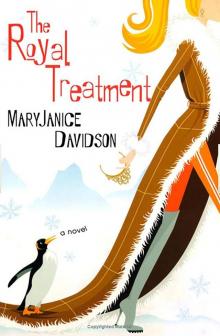 The Royal Treatment
The Royal Treatment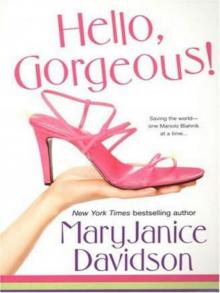 Hello, Gorgeous!
Hello, Gorgeous!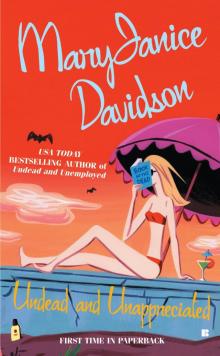 Undead and Unwed
Undead and Unwed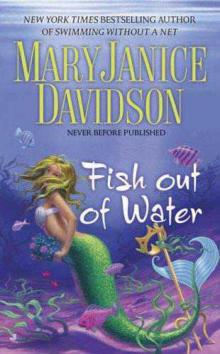 Fish Out of Water
Fish Out of Water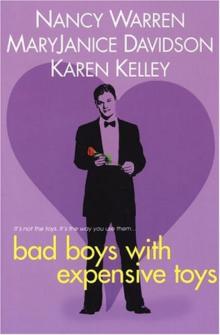 The World Is Too Darned Big
The World Is Too Darned Big Loves Prisoner
Loves Prisoner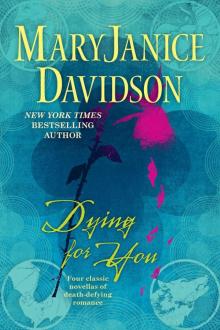 Dying for You
Dying for You Love Lies
Love Lies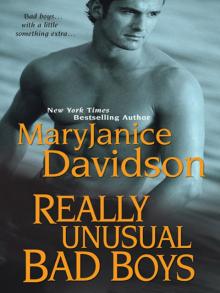 Really Unusual Bad Boys
Really Unusual Bad Boys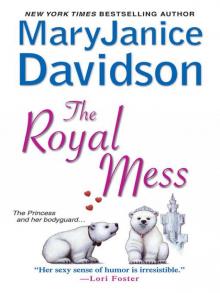 The Royal Mess
The Royal Mess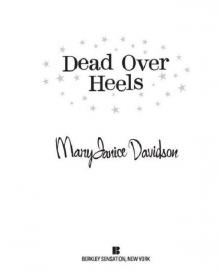 Dead Over Heels
Dead Over Heels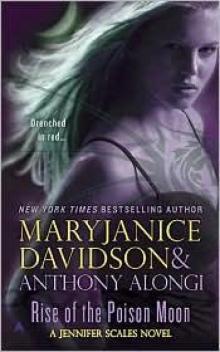 Rise of the Poison Moon
Rise of the Poison Moon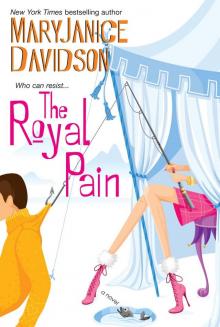 The Royal Pain
The Royal Pain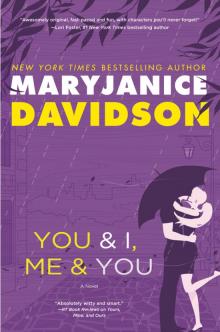 You and I, Me and You
You and I, Me and You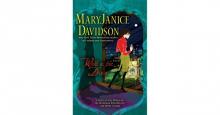 Jareds Wolf
Jareds Wolf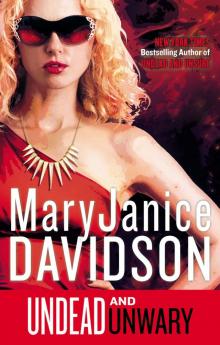 Undead and Unwary
Undead and Unwary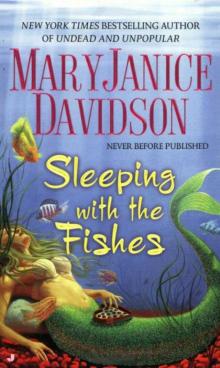 Sleeping With the Fishes
Sleeping With the Fishes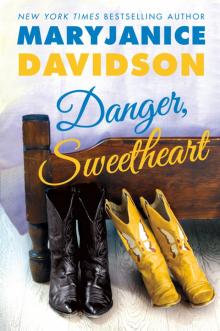 Danger, Sweetheart
Danger, Sweetheart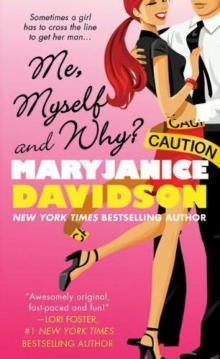 Me, Myself and Why?
Me, Myself and Why?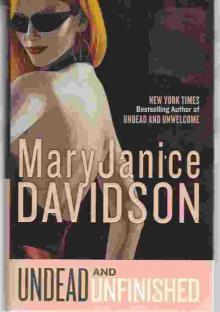 Undead and Unfinished
Undead and Unfinished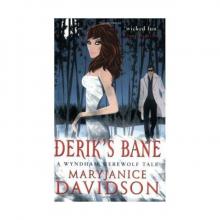 Deriks Bane
Deriks Bane Thief of Hearts
Thief of Hearts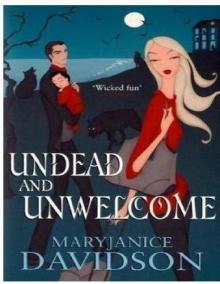 Undead and Unwelcome
Undead and Unwelcome Deja Who
Deja Who Deja New
Deja New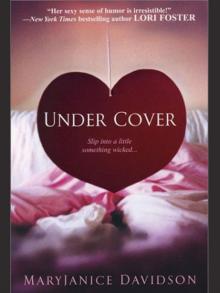 Under Cover
Under Cover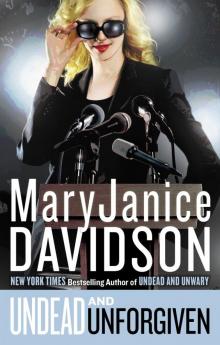 Undead and Unforgiven
Undead and Unforgiven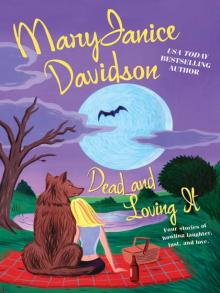 Dead and Loving It
Dead and Loving It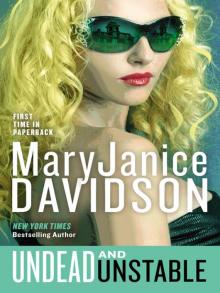 Undead and Unstable
Undead and Unstable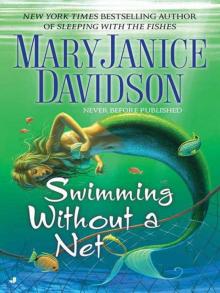 Swimming Without a Net
Swimming Without a Net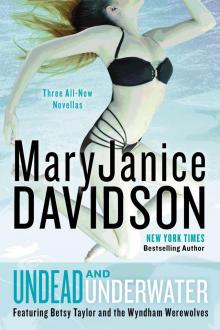 Undead and Underwater
Undead and Underwater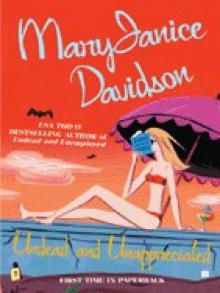 Undead and Unappreciated
Undead and Unappreciated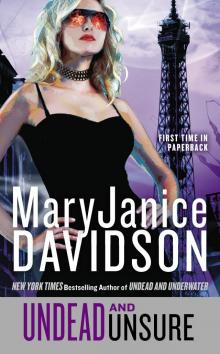 Undead and Unsure
Undead and Unsure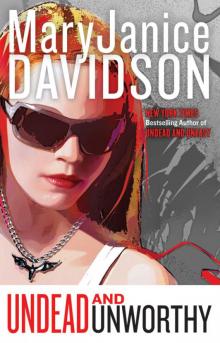 Undead and Unworthy
Undead and Unworthy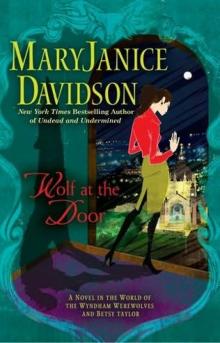 Wolf at the Door
Wolf at the Door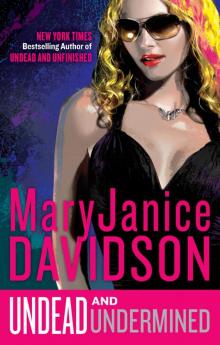 Undead and Undermined
Undead and Undermined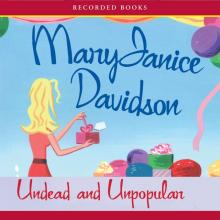 Undead and Unpopular
Undead and Unpopular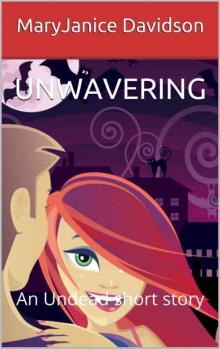 Unwavering
Unwavering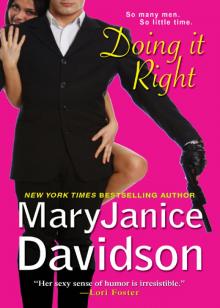 Doing It Right
Doing It Right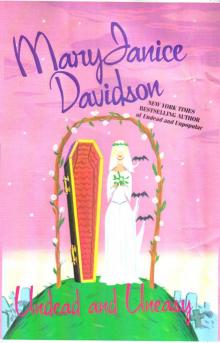 Undead and Uneasy
Undead and Uneasy Drop Dead, Gorgeous!
Drop Dead, Gorgeous!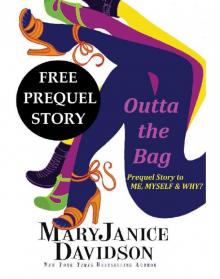 Outta the Bag
Outta the Bag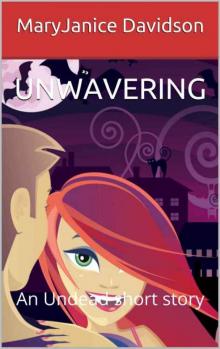 UNWAVERING: An Undead short story (Undead shorts Book 1)
UNWAVERING: An Undead short story (Undead shorts Book 1) Jennifer Scales and the Ancient Furnace
Jennifer Scales and the Ancient Furnace Yours, Mine, and Ours
Yours, Mine, and Ours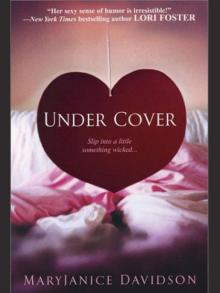 Under Cover (v1.1)
Under Cover (v1.1)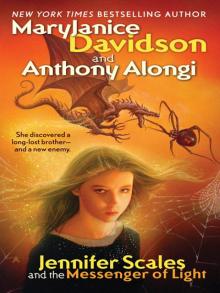 Jennifer Scales and the Messenger of Light
Jennifer Scales and the Messenger of Light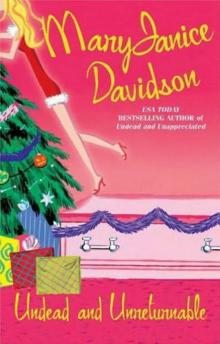 Betsy 4 - Undead and Unreturnable
Betsy 4 - Undead and Unreturnable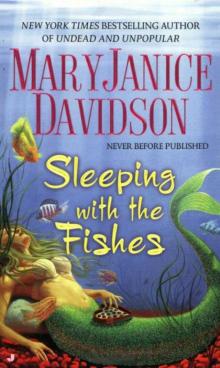 Sleeping with the Fishes (v1.1)
Sleeping with the Fishes (v1.1) betsy short 02 - ureliable
betsy short 02 - ureliable Evangelina
Evangelina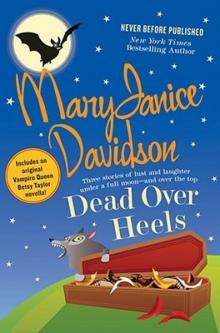 Dead Over Heels (wyndham werewolf)
Dead Over Heels (wyndham werewolf)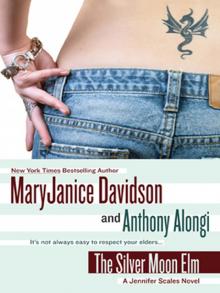 The Silver Moon Elm
The Silver Moon Elm Faeries Gone Wild
Faeries Gone Wild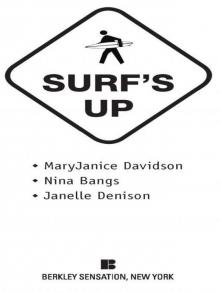 Surf's Up
Surf's Up Seraph of Sorrow
Seraph of Sorrow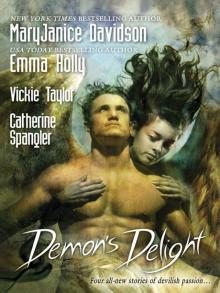 Demon's Delight
Demon's Delight